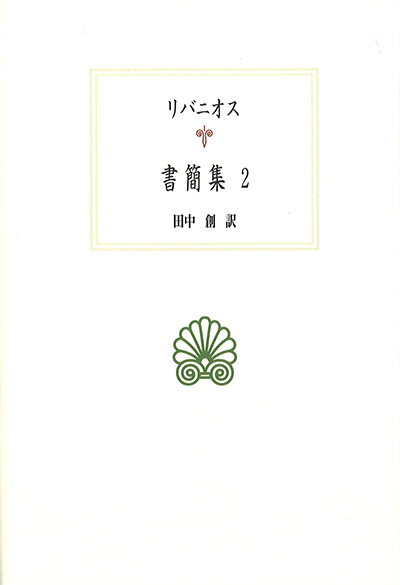
Title
Seiyo Koten Sosho series Shokanshu (Translated Letters of Libanius the Sophist. Volume 2.)
Size
676 pages, hardcoverページ
Language
Japanese
Released
January, 2019
ISBN
9784814001736
Published by
Kyoto University Press
Book Info
See Book Availability at Library
Japanese Page
This book is a Japanese translation of letters written in Greek by the fourth-century sophist, Libanius. He was an officially appointed teacher of Greek rhetoric in Syrian Antioch. Although it may sound that he just taught Greek classics in tidy classrooms, he made many political speeches addressed to Roman Emperors and high officials on behalf of his own city, and formed a wide network of friends and ex-pupils who were active as imperial officials or city councillors all over the Eastern Empire. Relying on these personal relations, he sometimes played a leading part in the diplomatic negotiations between the Empire and his city, and occasionally got involved in the private cases of his clients. Therefore, his letters, which were written to many notable persons in the Empire, make a rich mine of historical information on the social and political lives in the fourth century.
Libanius’ letters are a showcase of the classical Greek rhetoric in Late Antiquity, as well. They contain many references to the Greek myths and history of classical Athens. Many of their sentences represent rearrangements of those of famous classical authors, such as Homer, Plato, Thucydides, Pindar, and Demosthenes. Although they may seem “mannerisms” or snobbery, Libanius gave a new life to these allusions to Greek classics by enriching their connotations with the background of the real life. We can see how Greek classics formed a backbone for the communication among the educated class in the Later Empire, which got more and more Christianized. Furthermore, his letters give a large amount of prosopographical information, which has been crucial for the historical research of the fourth-century Empire. Many public careers and social relationships have been found and studied from this corpus. In these circumstances, the letters are a fundamental resource of the history of the Later Roman Empire.
The translation of Libanius’ letters made this rich mine of information accessible to Japanese classicists and historians of Late Antiquity for the first time. Besides, not all his letters have been translated in modern languages, although some select ones have an English, German, Italian, or Spanish translation. Thus, this Japanese translation is an original attempt in that the scholar tackles the translation of the whole corpus, equipping it with a short commentary of historical and literary information.
This book is the second volume of the series, while all the letters of Libanius are to be translated in three volumes. This volume contains the correspondences under the reign of Julian the Apostate and those from Libanius’ last days. Libanius, a confidant of the apostate, gives a hint of many aspects of the young emperor’s religious policy. On the other hand, the letters of his last days were written under the emperor Theodosius I, who is famous for his support of Christianity. Libanius, who was a pagan, achieved his final political flourish under this emperor, contrary to all expectations. These letters are a treasure trove for his political clout and social network in the Christianizing Empire.
(Written by TANAKA Hajime, Associate Professor, Graduate School of Arts and Sciences / 2020)



 Find a book
Find a book

